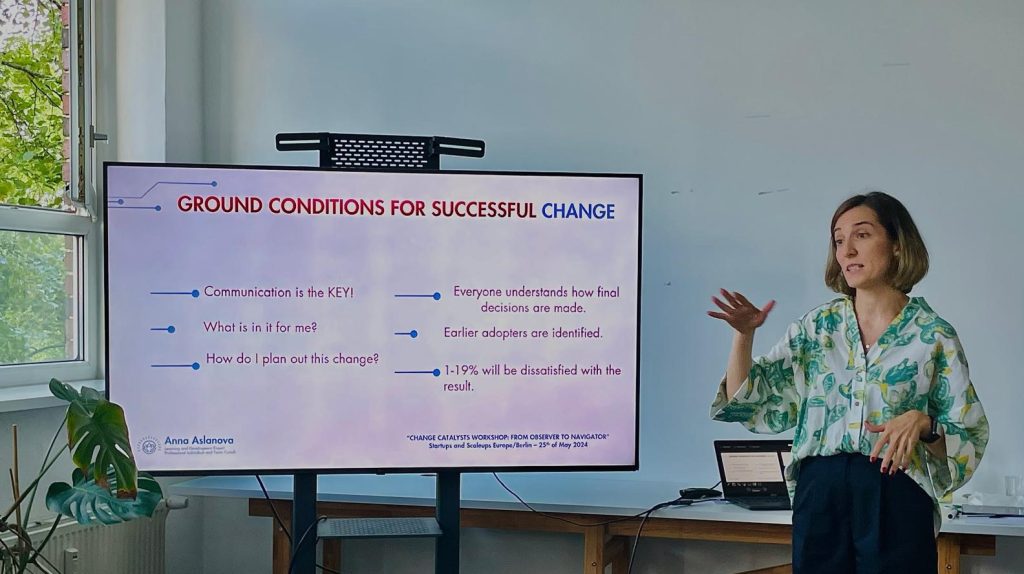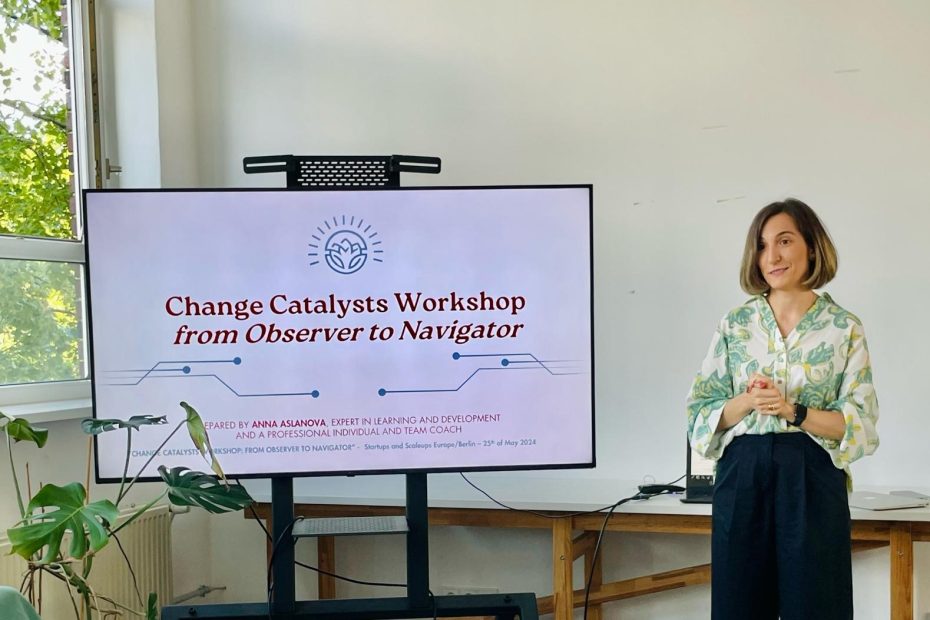Change is a constant force, and understanding your role in this evolving landscape is essential. In a recent workshop attended by L&D experts, coaches, HR professionals and Tech, we delved into effective change management strategies. This diverse group allowed everyone to share knowledge and experiences in a safe and trustworthy atmosphere.


Here are some key takeaways:
At the Personal Level (Me), self-awareness is crucial. Embracing change starts with understanding who you are and who you are not and addressing your vulnerabilities. This self-awareness lays the foundation for personal growth and adaptation.
At the Social Level (We), collaboration and open communication are vital. Building a supportive network and sharing thoughts and solutions foster collective growth. Team members can manage change more effectively when they feel supported and connected.
At the Systemic Level (Beyond Me and We), recognizing the broader impact of change on the system is important. Developing strategies that consider the larger picture and taking proactive steps to influence positive systemic change can lead to sustainable transformation.
Best practices from leadership experience include maintaining regular communication, encouraging feedback, and celebrating small wins. As John P. Kotter, a well-known change management expert states, “Transformation is a process, not an event.” This highlights the importance of ongoing efforts and patience in managing change.

Each team member must be allowed to progress through change at their own pace, ensuring they feel supported and engaged throughout the journey. By implementing these principles, organizations can navigate change more effectively and build a resilient, adaptable team culture.

